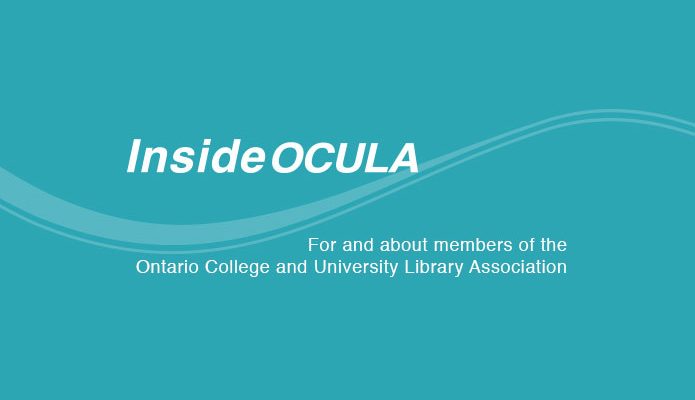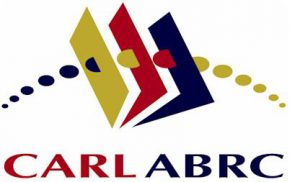
Building a Discourse for Librarians and Scholarship
 This June I participated in the third annual CARL Librarians’ Research Institute (LRI) hosted at Carleton University, Ottawa. The institute is billed as an opportunity for practicing librarians to “immerse themselves in sustained conversations and activities related to scholarly research, inquiry, and publishing” (CARL, 2014). Over the three and a half days, a team of five peer mentors led 29 participants through activities, guided reflections, and lectures.
This June I participated in the third annual CARL Librarians’ Research Institute (LRI) hosted at Carleton University, Ottawa. The institute is billed as an opportunity for practicing librarians to “immerse themselves in sustained conversations and activities related to scholarly research, inquiry, and publishing” (CARL, 2014). Over the three and a half days, a team of five peer mentors led 29 participants through activities, guided reflections, and lectures.
It was an experience that has deeply shaped my own professional practice as well as my understanding of the role of research in librarianship.
Setting the scene
Mary Cavanagh, Assistant Professor at the University of Ottawa’s School of Information Studies, opened the institute with a discussion of the struggles, joys, messiness, and rewards of the research process. She shared her top 10 “matters of fact” for practicing library and information science (LIS) professionals engaged in research. Drawing on her experience as an LIS educator, Mary also spoke about the importance of having library research, and Canadian library research in particular, to use in her teaching.
As she writes in her blog post on the LRI, “I need your [librarians’] research to help students understand more about where they’re going.”
Following Mary’s keynote, the peer mentors set the tone for the institute. Acknowledging that we all face research barriers – lack of time, funding, resources, managerial support, skills – they also recognized that dwelling on deficits would likely serve to “mire discussions on problems rather than solutions” (Jacobs & Berg, 2013, p. 229). So, they asked us to put aside negative discussion and focus on building the research environments we want in our libraries. This strategy worked brilliantly.
The LRI
Over the course of the institute, the peer mentors led our group through a packed agenda of lectures, group discussions, activities, and self-reflections. Session topics included developing strategies for balancing research and practice, establishing research problems and questions, selecting methods and approaches, designing research plans, and making professional contributions to the research culture in Canadian libraries.
Reflecting on the experience, one of my co-participants, Stéphanie Simard (Université du Québec à Trois-Rivières) describes the LRI as a condensed doctoral research seminar. This description perfectly captures the purposeful, intensive research focus as well as process of creating of a supportive cohort.
Shelley Gullikson (Carleton University) explains that she found the institute valuable because it provided the mental space to focus on research. On the last day of the LRI, peer mentors talked about the importance of committing to simple daily practices such as carving out 20 minutes to read something scholarly each morning and planning regular blocks of time for research. It’s through such practices that we make the metal space for research into a habit.
The LRI and research culture
In addition to creating supportive networks and developing research skills, I believe that the LRI is doing something much bigger. As Christine Walde (University of Victoria) notes, by bringing librarians from across Canada together each year to take up research practice in this way, the institute is building a strong discourse around librarians and scholarship. She feels inspired by this type of engagement to expand the theory on libraries through her own research practice.
For me, the LRI provided the immediate benefits of having the space and time to think about my own work and connect with other librarians doing research.
I came away with the understanding that engaging in research is more than a professional opportunity. Of course, librarians’ research allows us to better describe and theorize our libraries, understand our patrons, and improve our services. But it also has an important role to play in engaging with the research culture at our institutions and training future librarians. My real “aha” moment at the LRI was the realization that the stronger our research culture, the more leverage we have in leading the future direction of our libraries.
The LRI felt like my official welcome into a community of research librarians and an entry point into the culture of librarian research in Canada. I look forward to being part of this conversation.
For the perspectives of LRI organizers and founders see A Place for Mentorship and Support: The CARL Librarians’ Research Institute in this issue. To learn about research projects happening in Ontario libraries, watch InsideOCULA’s new Research Spotlight section.
Jenaya Webb is a Public Services Librarian, University of Toronto, Editor-at-large, InsideOCULA, and a 2014 LRI participant.
References
Cavanaugh, M. (2140, June 16). Research as practice for academic (and any other) librarians.
Jacobs, H. L. M., & Berg, S. A. (2013). By librarians, for librarians: Building a strengths-based institute to develop librarians’ research culture in Canadian academic libraries. The Journal of Academic Librarianship, 39(3), 227-231.
The 2014 LRI peer mentors were Cara Bradley (Teaching and Learning Librarian, University of Regina); Marwin Britto (Associate Dean of the Library, University of Saskatchewan); Tony Horava (Associate University Librarian for Collections, University of Ottawa); Pascal Lupien (Research Enterprise and Scholarly Communication Librarian, University of Guelph); and Selinda Berg (Librarian, University of Windsor, and 2014 LRI Program Co-Chair).


